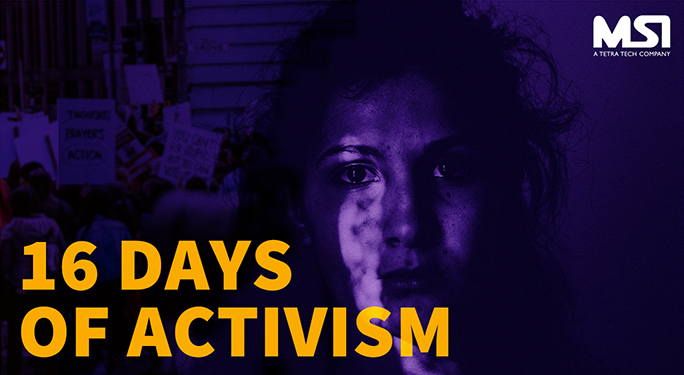
In Mexico, violence against women has risen to tragic and epidemic proportions. An average of nine women are killed there every day according to the U.N. A survey conducted in 2018, found that 45% of women in Mexico have experienced intimate partner violence, and 10% of girls 15 years and older have experienced violence by a family member.
The Government of Mexico has been working hard to effectively implement complex criminal justice reform and bring more perpetrators to justice. At MSI, we’ve been implementing the USAID-funded Promoting Justice Project (PROJUST) for the past 5 years to support the Government in these important efforts.
We focus on locally-led and -owned solutions, including those that address domestic violence. Our activities contribute to the improved responsiveness of local justice systems at the municipal and state levels to crimes of domestic violence, while also improving the services provided to victims.
One important improvement being made is through policy dialogues. We work with state-level stakeholders—including governors, state attorneys general, presidents of state courts, and heads of municipal and state police, among others. Why is this necessary? Because it’s critical to establish buy-in and political will for local systems initiatives. The project promotes local solutions through the “100-Day Challenge” methodology, which brings these men and women together to rapidly identify locally-tailored solutions to complex problems.
Since 2017, the state of Chihuahua has seen dramatic improvements in the resolution of domestic violence cases in Ciudad Juarez and Chihuahua City. In PROJUST’s first so-called 100-Day Challenge to address domestic violence in Chihuahua City, participating “frontline” operators from the justice sector, civil society and private sector achieved an impressive 74% increase in the number of cases resolved.
Innovations further contributed to improvements in the quality of the justice system’s response, including training for police officers to prevent re-victimization of women who report domestic violence, and the creation of a registry of local civil society organizations providing support services for victims.
In Ciudad Juarez, participants in a 100-Day Challenge achieved a whopping increase of 193% in the number of domestic violence cases resolved. They cited inter-institutional efforts to streamline processes and improve coordination as the key to their impressive results. The prior success of policy dialogues that integrated the 100-Day Challenge approach proved effective for building political will to support a new wave of 100-Day Challenges.
The new 100-Day Challenges will form part of a “Campaign Against Domestic Violence” led by the governor to foment political support and to raise public awareness of the government of Chihuahua’s efforts to combat impunity in domestic violence crimes. The dual strategy behind the campaign will improve the justice system’s response to the high rate of domestic violence crimes that can be resolved via alternative justice mechanisms such as pre-trial diversion (through 100-Day Challenges), while also using an evidence-based policy to prosecute more violent cases where aggressors can be neutralized, thus preventing possible femicides.
We are also building upon lessons learned regarding the sustainability of past 100-Day Challenges and the need to engage the executive branch of state governments for true local ownership and commitment that will extend beyond the present interventions. We will pursue the same approach in Zacatecas and Coahuila, based upon the success of the policy dialogue in Chihuahua.
